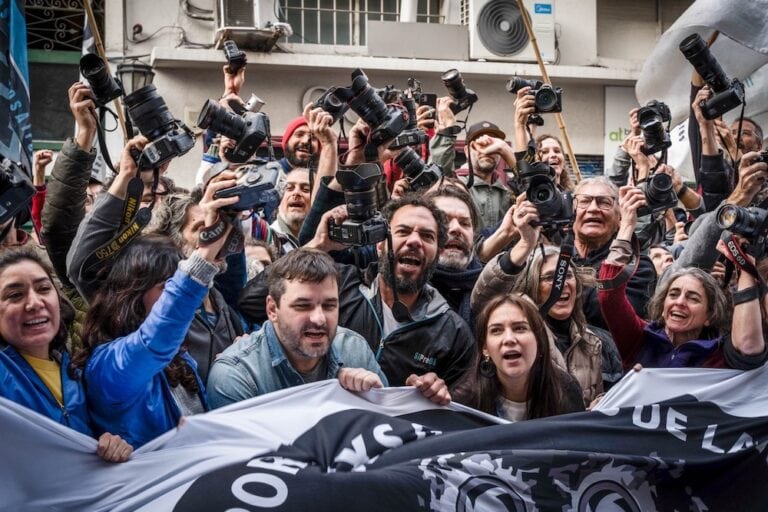(Periodistas/IFEX) – On Saturday 13 November 1999, two officers of the Provincial Police of San Luis intimidated radio journalist Mario Otero while he was driving through the capital city. In an uncommon gesture for the security forces, forty-eight hours after the incident, the provincial police chief suspended the two officers involved and opened an internal […]
(Periodistas/IFEX) – On Saturday 13 November 1999, two officers of the
Provincial Police of San Luis intimidated radio journalist Mario Otero while
he was driving through the capital city. In an uncommon gesture for the
security forces, forty-eight hours after the incident, the provincial police
chief suspended the two officers involved and opened an internal inquiry to
investigate the situation.
For more than a year, Otero, who runs the programs Nada es secreto (Nothing
is Secret) on Radio Universidad, and Claro como el agua (Clear As Water) on
Radio Dimension, has been investigating a criminal incident known in the
province as the “Claudia Díaz case,” about a young girl’s disappearance from
her home approximately five years ago. Since her body was never found, the
police and judicial investigation concluded that the girl died while
undergoing an abortion, and two people were sentenced to prison. However,
the reappearance of the girl, alive, and various other elements uncovered by
the authorities, have since revealed that the investigation undertaken by
the police’s criminal division, and the judge presiding over Criminal Court
Three in San Luis, allegedly presented a series of irregularities. Otero was
following the case and disseminating information about the police and the
magistrate.
“Among the police officers named was Commissioner Enrique Veron, who was an
officer in the criminal division during the ‘Claudia case’ era. For several
days, he had been harassing me, and sending me intimidating messages through
other people,” Otero told PERIODISTAS. “I made the situation public, and on
Tuesday 9 November, the province’s police chief, Jorge Arce Villegas, called
to say that I was guaranteed complete security during my investigations.
However, on Saturday 13 November, at 12:05 p.m., a car without licence
plates or identification followed me for 300 meters while I was driving
through the Visitadores Médicos neighborhood. Veron and the police officer,
Jorge Adrián Romero, were in the car. To escape them, I drove to an area
where there were witnesses, and shortly after that, they stopped following
me.”
On Monday 15 November, Otero presented this information to the police. At
the same time, the Human Rights Commission of the Provincial Chamber of
Parliament suspended discussion of all other matters in order to table the
intimidation suffered by the journalist. In response, the Chamber of
Parliament unanimously approved a declaration repudiating the occurrence, in
which the Human Rights Commission cited the provincial chief of police. The
following day, the functionary attended, recognised the vehicle that
followed Otero as belonging to the force, and communicated to the
legislators that he had ordered the suspension of Veron and Romero, who
would also be required to hand over their standard issue weapons.
The provincial parliament’s legal advisor, Carlos Alfredo Cejas, told
PERIODISTAS that thanks to the collaboration of the provincial chief of
police, they were able to take action very quickly: “Arce Villegas
immediately launched the internal investigation of the two police officers.
If the denunciation of Otera is looked into, we will be able to decide
whether to proceed with, on the one hand, firing the responsible parties and
putting administrative sanctions into place, or on the other hand, a
judicial investigation into the false commission on threat crimes. If the
officers are found guilty of this crime, they could receive a sentence of
two to four years in prison,” explained Cejas.


